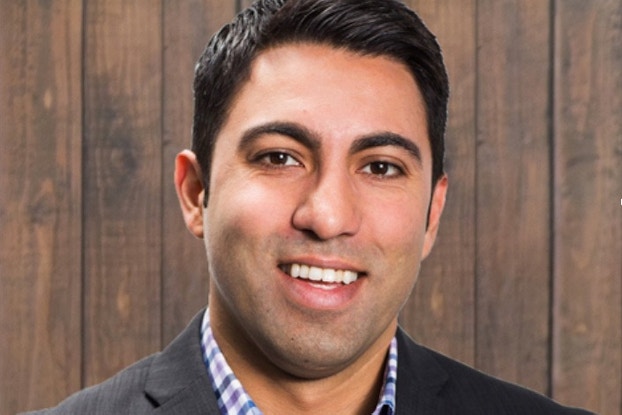
Why it matters:
- The direct-to-consumer mattress market took flight over the past dozen years, as startup brands like Saatva, Casper, and Purple tapped into consumers’ increasing willingness to purchase big-ticket items online.
- As the startups’ online sales plateaued, DTC mattress companies have turned to brick-and-mortar stores to jumpstart growth.
- Now Saatva, a pioneer in the DTC mattress space that grew to $400 million in sales by building a national manufacturing and delivery distribution network— a peer- differentiated business model — is eyeing growth by opening mattress showrooms in 50 major markets over the next four years.
Saatva became a $400 million mattress brand by offering the services and the selection of a luxury mattress store, without the store.
Now, the disruptor, one of the first direct-to-consumer online mattress brands, is looking to jump to the next level by opening stores in major cities across the United States.
The plan is to create experiential showrooms that will expand Saatva’s reach beyond online shoppers and connect the brand with those customers who want to touch and try before they buy.
While willingness to buy mattresses online has increased significantly during the pandemic, most shoppers “still want to touch and feel the product,” Ricky Joshi, Saatva co-founder and chief strategy officer, told CO—.
To that end, the new showrooms, Joshi said, will allow Saatva “to change our addressable market from 25% to 100%” of consumers.
Saatva, which was founded to disrupt the mattress industry, is now looking to disrupt the mattress store industry, Joshi said.
The company opened stores in Los Angeles and San Francisco in March, and it plans to open more than 50 stores over the next four years. It also has stores in New York and Washington, D.C.
[Read: Big Brands’ Inventory Management Partners Share Top Tips to Slay Supply Chain Snarls]
Setting Saatva apart from out-of-the-box competitors with white-glove customer delivery of luxury mattresses
Saatva was founded in 2010 by Joshi, along with another tech entrepreneur Kris Brower and former Jennifer Convertibles executive Ron Rudzin, who had more than 30 years of experience in furniture and bedding.
The initial idea was to sell a luxury innerspring mattress for less, using e-commerce and direct-to-consumer marketing to keep costs lower than typical retail prices. Saatva offered white-glove delivery of the mattresses, and gave customers a three-month trial period for returns.
Saatva was selling mattresses online before prominent online competitors like Casper, founded in 2014; Purple, born in 2015; and Nectar, which started selling its products in 2017. But while most of the more than 100 online mattress startups launched over the past decade staked their fortunes on selling mattresses that could be rolled and compressed and delivered in a box, Saatva was an out-of-the-box outlier.
It sold mattresses that had to be delivered the old-fashioned way, with a delivery team that carried it into your home. It set up a network of 159 delivery distribution centers and lined up U.S. factories to make the mattresses.
“Saatva’s products tend to have a more traditional look and feel that more closely resembles a higher-end product you’d find in a local store than other products you find online,” industry expert Michael Magnuson, CEO of Goodbed, an independent consumer buying guide, told CO—.
“Similarly, they are one of the few direct-to-consumer mattress companies that does not roll-pack their mattresses, so their products arrive in the home in a more similar manner to how a traditional mattress would arrive,” Magnuson said.
“All of this is consistent with Saatva’s price points, which generally put them in the higher end of the overall direct-to-consumer field,” he said.
[Read: 5 Consumer Trends Businesses Should Know in 2022]
By staying disciplined, and keeping a focus on profitability, we’ve been able to keep growing organically.Ricky Joshi, co-founder and chief strategy officer, Saatva
Tapping stores to jumpstart growth and reach a bigger addressable market
Direct-to-consumer mattress companies have seen, like Saatva has, that they need physical stores as well as online sales, Magnuson said.
“When direct-to-consumer mattresses first took off in 2014 and 2015, many people were surprised at how many consumers were willing to buy a mattress without trying it in a store first,” he said.
GoodBed tracks buying preferences closely and saw that the percentage of those willing to buy online plateaued at just over 40% in 2018. The pandemic pushed that number to 50%, but that “still leaves half of the market inaccessible to direct-to-consumer companies who don’t offer a brick-and-mortar strategy,” Magnuson said.
As a result, Purple, Nectar, and Casper have also been aggressive in growing their store footprint, he said.
The mattress manufacturing industry is highly concentrated, with the two biggest companies, Tempur Sealy International, Inc., and Serta Simmons Bedding, LLC, cornering close to 80% of the market, according to a report by research firm IBISWorld.
The showroom strategy: Tech enabled ‘viewing rooms’ where customers can try out the mattresses, aided by ‘sleep guides’
Saatva opened its first store in New York City in late 2019, three months before the start of the pandemic. Its second store opened in Washington D.C. in November.
Saatva calls the stores “viewing rooms.” They are designed to be self-guided spaces where customers can touch, feel, and try out the mattresses, sheets, pillows, and bed frames Saatva sells, while learning about the products from interactive kiosks and the “sleep guide” employees in the store.
The pandemic slowed the rollout of the showrooms, but the company now is moving ahead aggressively with its plans.
The viewing rooms, Joshi said, are designed to bring the experience of the website, where customers take surveys and answer questions to find the right mattress for them, into a store setting.
“We feel that our in-store experience is really the physical embodiment of the website,” Joshi said, “A lot of the same things that can happen on the website, we allow customers to experience in our technology-enabled viewing rooms,” he said.
The New York showroom, which opened in late 2019, a few months before the pandemic hit, generated approximately $9 million in sales in 2021, making it one of the highest grossing mattress stores in the country, and possibly the world, Joshi said.
A Boston store is on track to open in May, followed by stores in Chicago, Seattle, Northern New Jersey, and Long Island, N.Y.
In addition to the viewing rooms, Saatva is planning to drive growth in the coming years by expanding its product line beyond mattresses and bedding into bedroom furniture and furnishings, and sleep technology products, Joshi said.

A self-funded startup that turned a profit in year-one with a data driven, cost-disciplined growth strategy
Another fact that differentiates Saatva from other mattress startups, according to its founders, is that it was self-funded for the first eight years of the brand, and profitable from its first year.
The company logged $415 million in sales in 2021, according to a Saatva spokesperson. Its sales jumped 53% during the two years of the pandemic.
Saatva is expected to enter the public markets at some point, but Joshi couldn’t comment on the timeline for that.
Being data-driven, disciplined about costs, and staying focused on the brand’s original vision helped Saatva be profitable and grow, Joshi said.
“By staying disciplined, and keeping a focus on profitability, we’ve been able to keep growing organically,” Joshi said. “Like the tortoise and the hare – growing the right way by doing right by our customers. Slow and steady.”
CO— aims to bring you inspiration from leading respected experts. However, before making any business decision, you should consult a professional who can advise you based on your individual situation.
Follow us on Instagram for more expert tips & business owners’ stories.
CO—is committed to helping you start, run and grow your small business. Learn more about the benefits of small business membership in the U.S. Chamber of Commerce, here.









